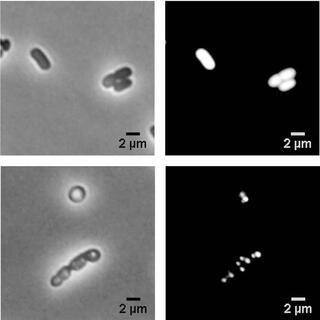The physiological effects of isobutanol on Zymomonas mobilis

Background/Objective
Zymomonas mobilis has properties that make it a good candidate for industrial biofuel production: high catabolic rate, low biomass generation, resistance to inhibitors in lignocellulosic hydrolysates; an a growing set of genetic engineering tools. Recent efforts have targeted Z. mobilis for isobutanol production, but isobutanol toxicity limits growth and productivity. The physiological effects of isobutanol on Z. mobilis are poorly understood.
Approach
Researchers used a systems-level approach comprising LC–MS/MS-based lipidomics, metabolomics, and shotgun proteomics to investigate how exposure to ethanol and isobutanol affect the lipid membrane composition and overall physiology of Z. mobilis.
Results
Analysis revealed intricate alterations in membrane phospholipid and fatty acid composition from both ethanol and isobutanol exposure. Isobutanol exposure elicited a broad stress response – marked by upregulation of heat shock proteins, efflux transporters, DNA repair systems, and the downregulation of cell motility proteins – as well as a generalized slowdown of metabolism.
Impact
Providing a comprehensive, systems level evaluation, this study broadens the understanding of Z. mobilis response to solvent stress. It will assist in the development of strategies to mitigate adverse effects of isobutanol and inform engineering of Z. mobilis strains with enhanced isobutanol tolerance.